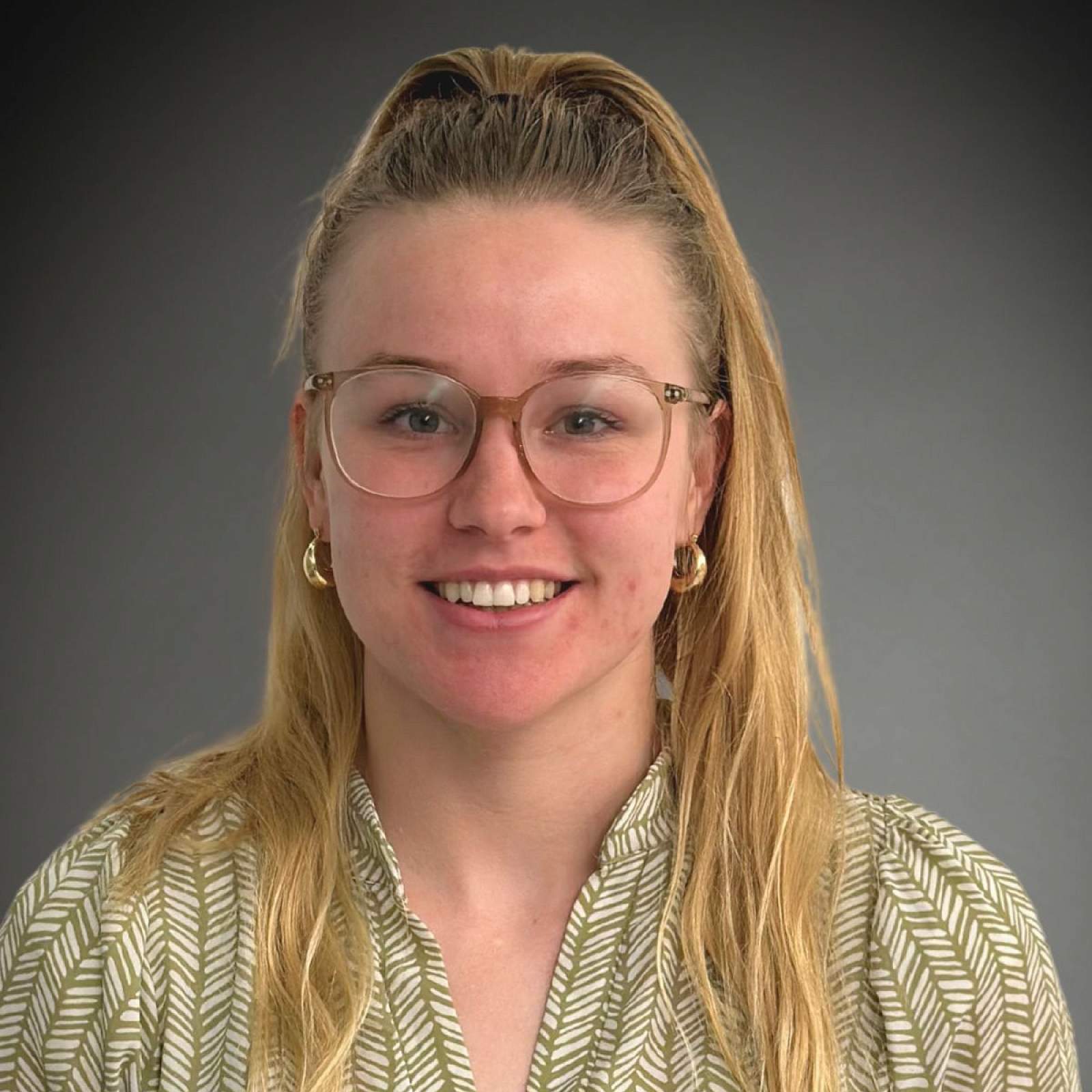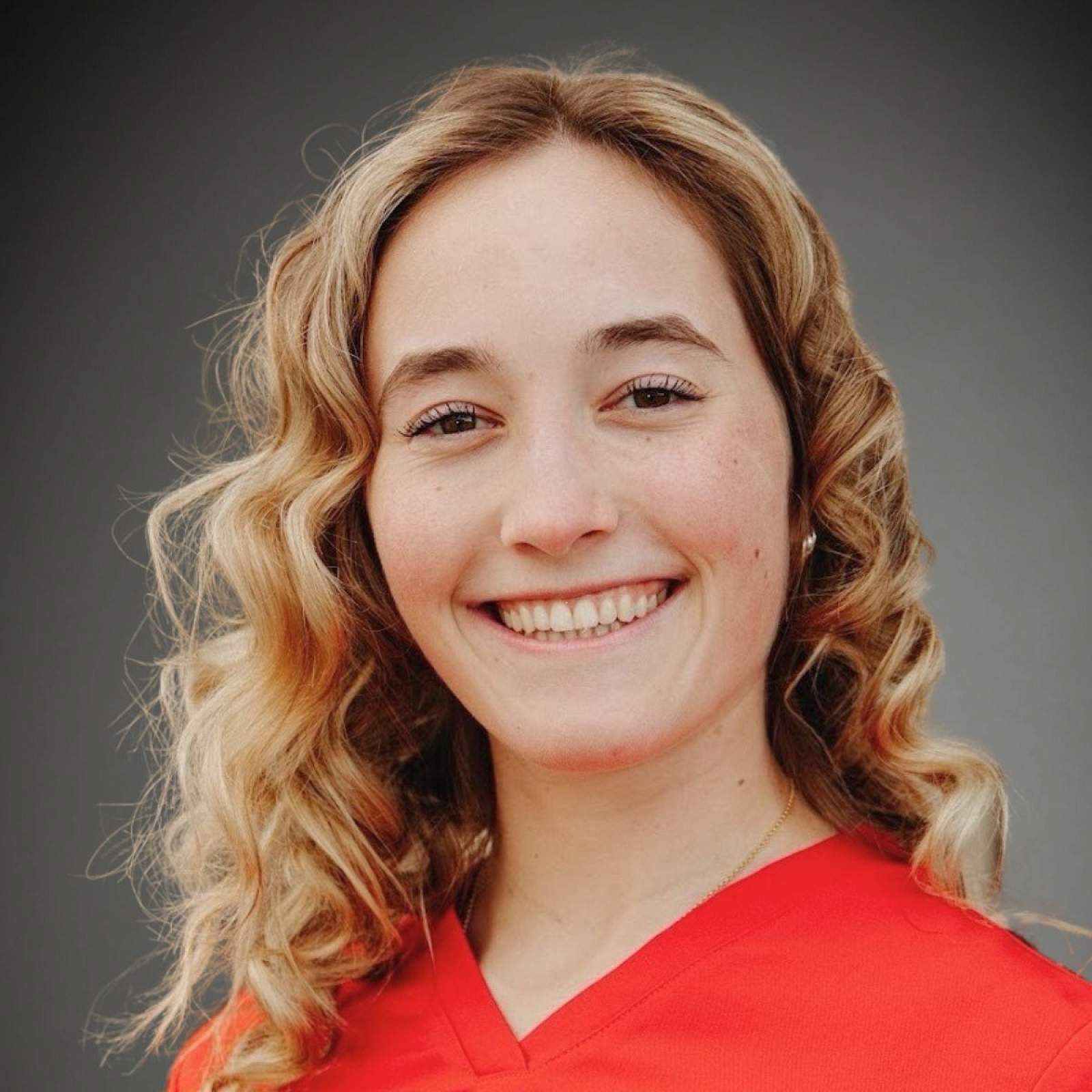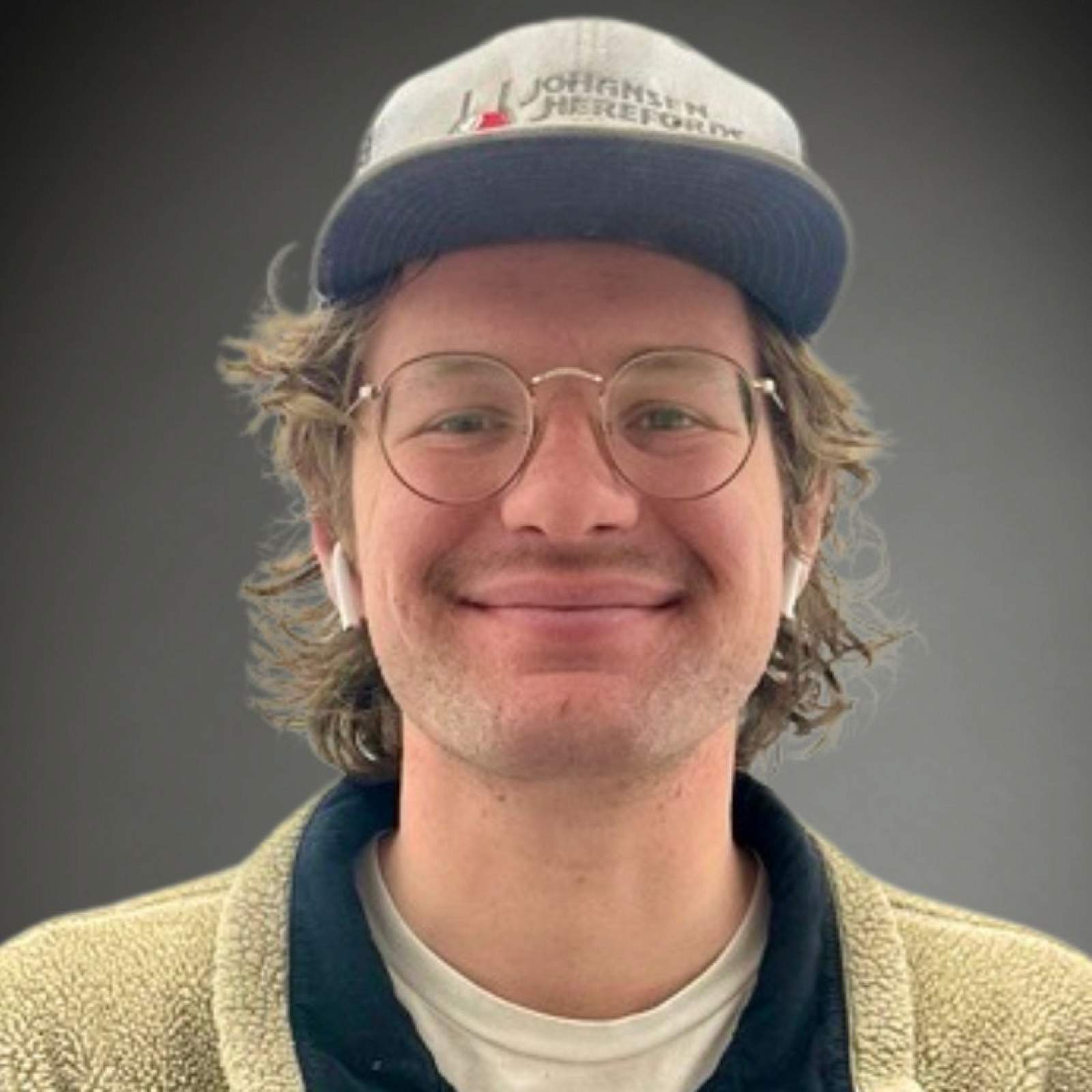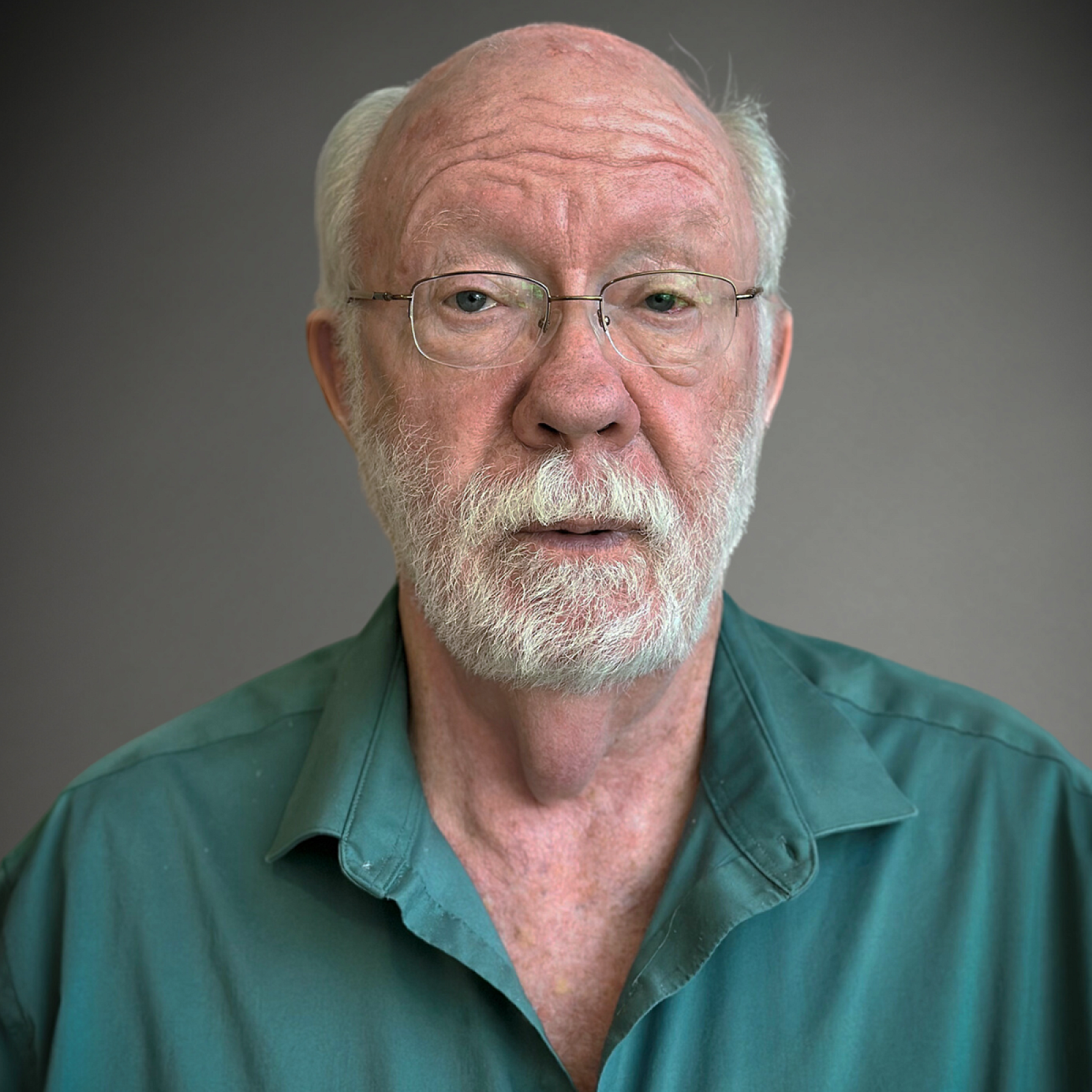
Principal Investigator
Lab Staff
Hannah Behymer is a Biology undergraduate at Brigham Young University–Idaho with research experience in neurodegenerative disease, genetics, and molecular biology. She has worked on Parkinson’s disease models, genetic therapies for dementia in animal models, and studied function of specific genes associated with immune system in C. elegans.
She is currently involved in retinal research, performing tissue dissections, immunohistochemical and molecular assays, confocal imaging, and data analysis.
Outside the lab, Hannah enjoys hiking, backpacking, camping, snowboarding, and other outdoor activities.
Sydney is currently an undergraduate student at the University of Utah. She is majoring in biology with an emphasis on genomics/genetics. Sydney is committed to becoming a Hepatobiliary surgeon. In conjunction with this goal, she wishes to work with research institutions and hospitals to further understand various chromosomal abnormalities, specifically Turner syndrome and its increased presence in degenerative kidney diseases. Sydney believes that working in the Roy Lab will allow her to unravel the complexity of visual disorders and develop precise surgical techniques involved in ophthalmology. In her free time, Sydney competes in USA Olympic Recurve Archery, skiing, and hiking.
Connor joined the Engineering honors program at the University of Utah in 2023 and is expected to receive a bachelor's degree in Mechanical Engineering with an emphasis in Aerospace Engineering and a Minor in Ecology. Before joining this program, Connor spent several years in the Fiber Optic and Automotive industries. He loves to think critically and construct solutions for real-life problems. He hopes to build a strong foundation in dynamical systems and materials through this program at the U. With a strong affinity for manufacturing and design, Connor jumped at the opportunity to work on designs for a custom electrophysiology experimental system to study the retina and its degenerative diseases. In the lab, he designs and fabricates custom parts and develops solutions for retinal research. Outside of the lab, Connor enjoys traveling to new places and seeking out new skills, but frequently returns back to fishing, hunting, rock climbing, and working on cars and motorcycles.
William Lee is majoring in Chemical Engineering and Chemistry and has an interest in the pharmaceutical industry. He has worked in an organic synthesis lab developing lanthanide separation compounds and utilized Gaussian computational chemistry software to analyze reaction thermodynamics. With experience in synthetic wet lab techniques, Python, and working with High-Performance Computers (HPCs), William is ready to troubleshoot any problem. William is excited to utilize computational techniques to analyze electrophysiological data and contribute to retinal physiology and function characterization in Dr. Roy's lab.
Rishab is an undergraduate student at the University of Utah, where he is pursuing a major in biology with a focus on anatomy and physiology. He is dedicated to becoming an emergency medicine physician and is passionate about understanding the complexities of critical care and trauma management. He is currently working on an honors biology thesis investigating glaucoma, focusing on its pathophysiology. In the Roy Lab, Rishab aims to explore the mechanisms of retinal neural circuits and how disruptions in these pathways contribute to visual disorders like glaucoma. He believes his research will not only enhance his clinical knowledge but also contribute to the development of innovative preventative therapies for retinal diseases. Outside of research, Rishab enjoys working out, playing tennis, and hiking.
Matyas Szilagyi currently is working towards a bachelor's in biology with an emphasis in anatomy and physiology alongside a minor in integrated human biology and maintains an interest in the neurosciences for research. As in research Matyas has worked in several different laboratories picking up skills from several fields such as synthetic chemistry synthesizing under researched molecules such as ynecyanamides, neurology specifically in movement disorders such as Parkinsons' and Essential Tremor attempting to better patient outcomes and methodology of assessment, and within neuroscience work in olfaction determining neural circuits of the olfactory bulb in order to understand the neural code of olfaction in mice and now in the retina characterizing the physiology of the retina and further understanding of degenerative retinal diseases under Dr. Roy.
Will Wheatley has worked in academic labs and biotechnology companies in Utah and California, with an interest in understanding how organisms work and how that knowledge can help treat human diseases. Among other things, he has worked on tissue culture cell assays of chemical carcinogenesis, bacterial expression of proteins for possible diagnostic kits, reagents for DNA sequencing by capillary electrophoresis, growth, and characterization of human glial progenitor cells, and finding proteins that are bound by the soluble prorenin receptor using biotin ligase and antibody pulldown technologies.
Working in the Roy Lab, Wheatley is excited to enter a new phase in his research career and explore the retina and how it can offer new insights into sensory processing and diseases.
Dr. Bridget (Jie) Wu joined the Roy lab as a postdoctoral research associate in May 2025. She earned her PhD in Physiology and Developmental Biology from Brigham Young University, where she trained in the laboratory of Dr. Jeff Edwards. Her doctoral research focused on how drugs of addition modify synaptic plasticity of GABAergic neurons in the ventral tegmental area, using single-cell electrophysiology and optogenetics.
During her previous postdoctoral training in Dr. Keran Ma’s lab at UTHealth Houston, she used Neuropixels recordings and in vivo two-photon imaging to study how microglia modulate neuronal function in Alzheimer’s disease models.
In her current role in Dr. Suva Roy’s lab, she’s interested in using new animal models to study the morphology and functions of different ganglion cell types in the retina and map retinal projections to subcortical targets that are involved in visually guided behaviors.
Lab Alumni
Nathan Glaza received a bachelor of science degree in Biochemistry & Molecular Biology, with a minor in Pharmacology & Toxicology, from Michigan State University in 2022. Previously, working in the lab of Dr. Leah Owen at the Moran Eye Center, he studied the genetic and molecular causes of blinding eye disease, including retinopathy of prematurity, pediatric strabismus and amblyopia, and age-related macular degeneration. He aspires to pursue a career in medicine while also continuing research.
Outside of the lab, he enjoys watching and playing a variety of sports, hiking, skiing, and exploring the state of Utah.








